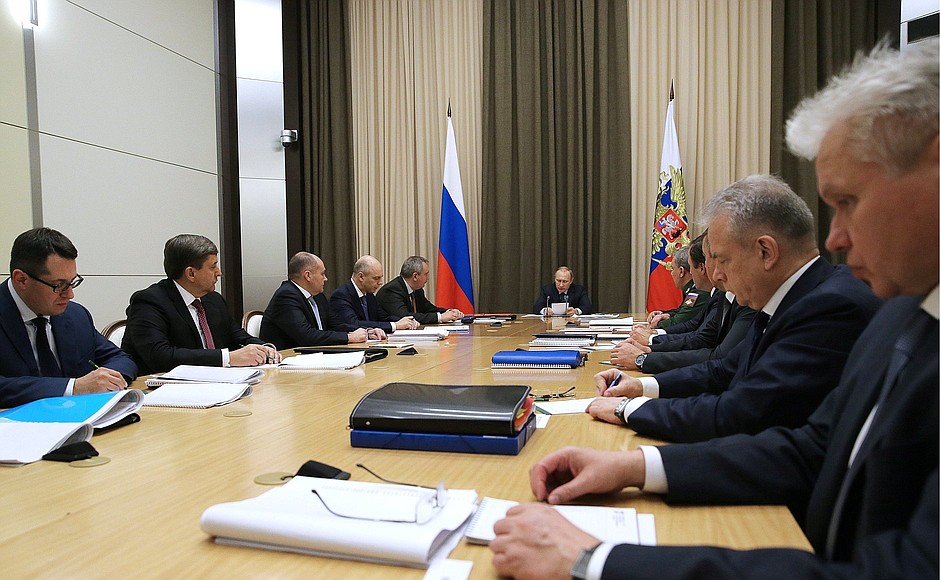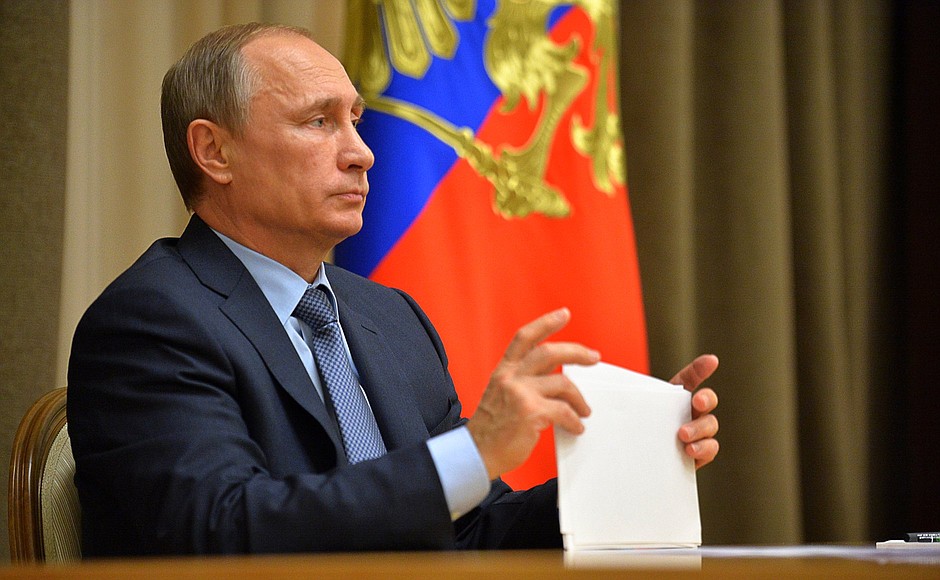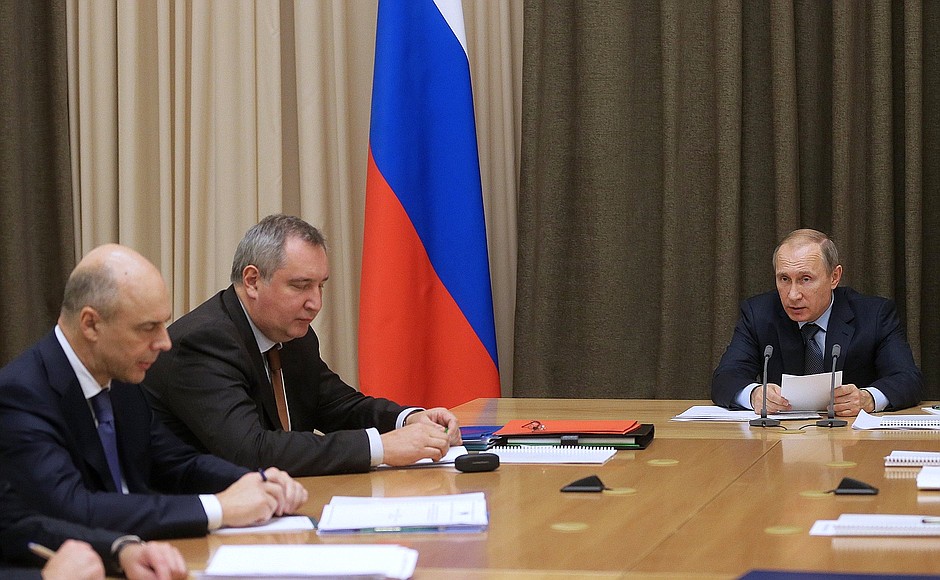President of Russia Vladimir Putin: Colleagues, good evening.
Our ten-year space activity programme will be completed this year, and today, we will look at the draft Federal Space Programme for 2016–2025 and discuss priorities in developing Russian space exploration in the future.
Right now, it is imperative to support the groundwork that has been laid, ensuring further development for the space sector, developing new areas in space exploration. At the same time, we should proceed from the government’s actual capabilities, and we must identify projects that require priority funding, as well as programmes that can be postponed further into the future.
In this respect, I would like to draw attention to the following priorities. First of all, we need to strengthen Russia’s group of spacecraft, aiming it toward solving practical problems. Important areas include space communications and remote sensing of the earth. The work by satellites and the information received from orbit are used broadly in economics, the social sector, science, various manufacturing industries and transport, and have good commercial potential overall. We need to increase our opportunities in this area, launching a series of new-generation devices and systems into orbit, so that they surpass the best global standards for many key parameters.
We certainly must also continue basic space research, and today, we must already understand what areas of scientific research will be encompassed in future space programmes and will make an input into scientific and technological progress.
A great deal of research work is currently being done in the Russian segment of the International Space Station. Its further development and equipment with modern technologies should also be among the federal space programme’s priorities.
Particular attention should be given within the framework of the programme to strengthening our positions in the rocket launch markets, bot for manned space exploration and carrying cargo into orbit, first and foremost of a commercial nature.
As you know, Russia is a global leader in the number of rockets it launches. But it is imperative to think long-term. Russian rockets must be reliable and competitive, meeting all requirements from leading customers, both domestically and abroad. In this respect, it is imperative to understand the rocket classes that will be in demand in the future and where we should focus our resources.
Again, the federal space programme is designed for a 10-year period, but we must also look at the long-term perspective, beyond 2025, and use it as a basis to create research and development capacity.
Let’s talk about all these issues.
<…>


